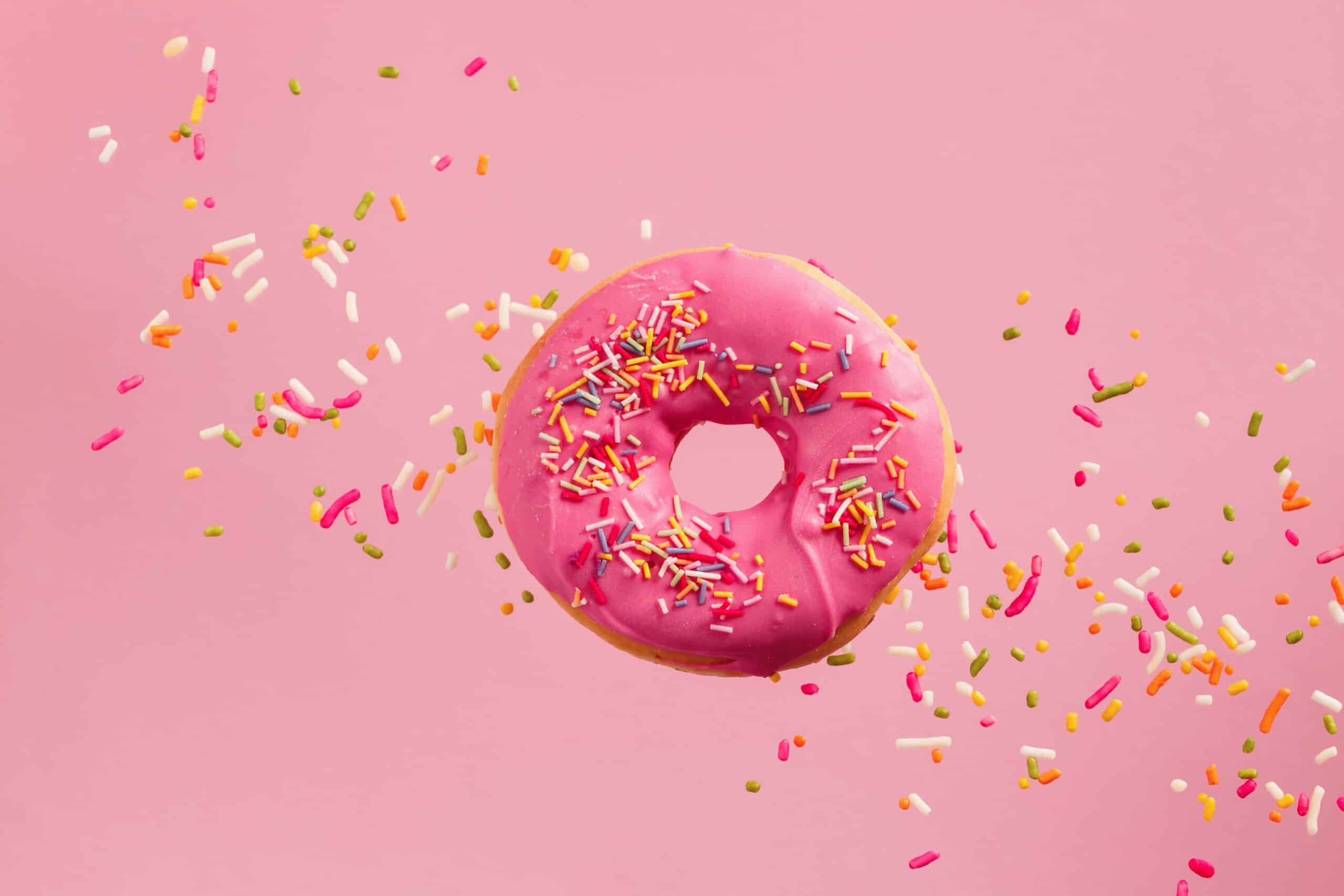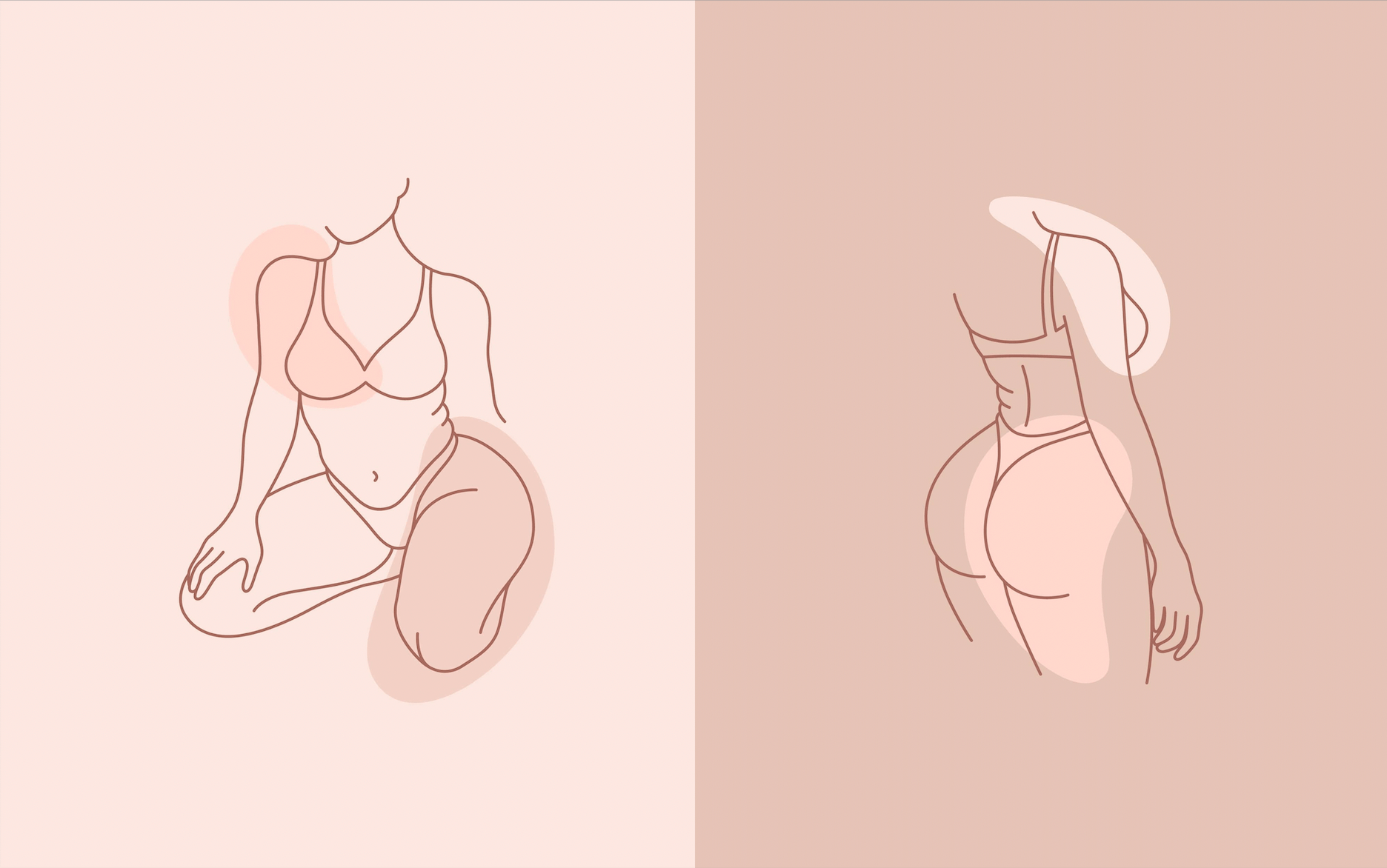Imagine a world where you could eat when you wanted, what you wanted and still be healthy.
Imagine if you could be THAT person who ate the entire pizza and didn’t suffer from dreadful guilt afterwards.
Well… guess what my friends This CAN be you. This IS possible. This is INTUITIVE EATING.
Intuitive Eating is a process that integrates mind, body and food that seeks to promote a healthy attitude towards food and body image whilst meeting your physical AND emotional needs.
It achieves this by going back to basics and attuning your body to your intrinsic hunger and fullness cues. Like a newborn, you listen to your body cues to dictate when and how much you eat. Therefore, eating is influenced mostly by biology rather than emotional or external pressures.
The end goal you ask? Diet freedom and a side of pure bliss!
The truth is, the mere contemplation of going on a diet brings urges of cravings for ‘sinful’ foods.
The pursuit of thinness and attempt to control what goes into your mouth by following rigid rules and unrealistic expectations leads to overeating.
Dieting cannot fight biology. In fact, research shows that semi-starvation – akin to starvation or famine – is associated with accelerated weight gain and an increased risk of becoming ‘overweight’.
Logically, if we stop restricting in the first place our bodies will be able to find their natural healthy place of rest – called your set-point.
Cue Intuitive Eating.
Intuitive Eating encompasses 10 principles and seeks to address cognitive distortions and emotional eating. It sees satisfaction as the focal point of eating and physical activity and aims to use nutrition information without judgement, respecting your body regardless of how you feel about its shape.
1. Reject the Diet Mentality
A common fear of ending dieting is that “if I stop dieting, I won’t stop eating”, however, what the research shows is that dieting or restriction is actually the TRIGGER for overeating and it is engrained in our biological response. By cutting off restriction in the first place, this renders the loss of control or overeating futile. So get rid of those weight loss pills, magazines and diet books that are giving you false hope and put weight loss on the back burner because it is putting you at the mercy of a numerical value and clouding your perception of health.
2. Honour Your Hunger
When you are hungry – eat. If you wait too long your hunger becomes so extreme that you are likely to feel a deep sense of urgency, which results in overeating. Nourish your body adequately with energy and begin to re-build trust in your body to tell you what it needs.
3. Make peace with food
Give yourself the unconditional permission to eat. Remove any label of ‘good’ or ‘bad’ and label foods for what they are – food. There is no morality to food and therefore no forbidden foods. Once you move away from the ‘should’ and ‘shouldn’t’, foods that were once on a pedestal become less enticing and you are less likely to overeat them.
4. Challenge the food police
Say f*$% off to those food rules that diet culture wants you to believe and challenge the inner voice that tell you ‘you can’t have that or you’ll gain weight!’. Be a neutral observer and notice what happens when you tune into your own inner wisdom.
5. Feel your fullness
Listen to your body signals that tell you when you are no longer hungry. Look out for signs that you are beginning to get full by pausing in the middle of a meal or snack and taking a moment to notice the aroma, texture, and sensory pleasure that is eating!
6. Discover the satisfaction factor
Prioritise the pleasure and satisfaction you get from your eating experience. When you eat what you really want rather than avoid it, you are more likely to eat an appropriate amount and to be less hungry soon afterwards. Eating is a sensory experience and it is important to enjoy it when building a trusting and positive relationship with food.
7. Cope with your feelings without using food
Find constructive, kind and nurturing ways to cope with your emotions. We all feel anxious, sad, angry or ashamed through life experiences. Food may be a short term comfort – as inevitably it is a biological comfort derived from a means of survival. However, food will not solve the problem in the long-term so it is important to learn to diversify your coping strategies.
8. Respect Your body
If everyone ate the same thing and moved in the same way for one entire year they would still all look different and have different body sizes. We all have our own genetic blueprint we need to accept. Focus on what your body does every single day for you – your lungs nourish your cells with oxygen, your immune system keeps you safe and fights disease, your brain regulates your body temperature and heart rate, your feet carry you every single day etc. Your body works. And all bodies deserve respect.
9. Exercise and FEEL the difference
Quit torturing yourself with exercise or using it as punishment. Your body is meant to move in ways that feel good! Shift your focus to what it feels like to move your body and find movement you enjoy doing.
10. Honour your health with gentle nutrition
There is no perfect way of eating. Make food choices that feel good and nourish your mind, body and soul. A few playful meals or snacks will not dictate your overall health.
To learn more about the wonderful programmes and support we offer, email [email protected] to find out more. We can’t wait to look after you!
Ariana Rodriguez, RD, MSc
Team EHL x













